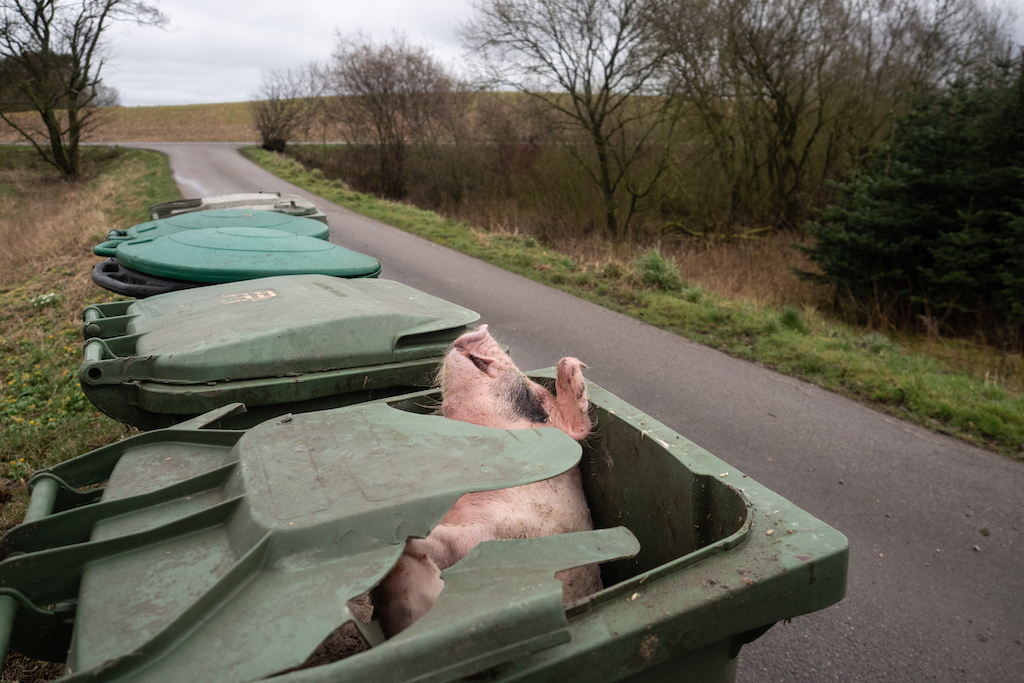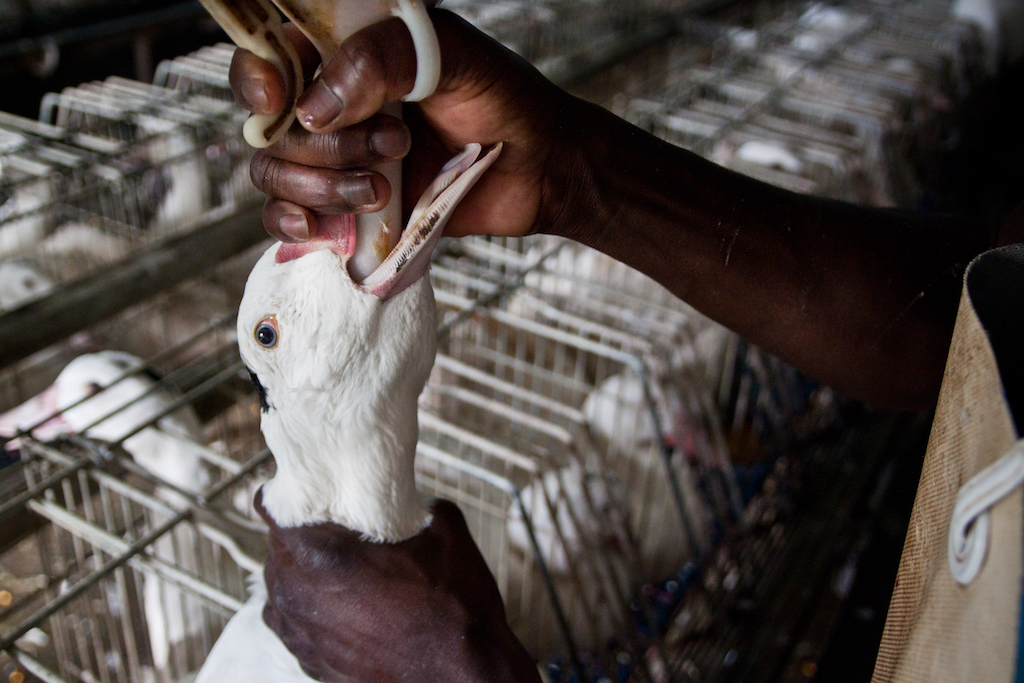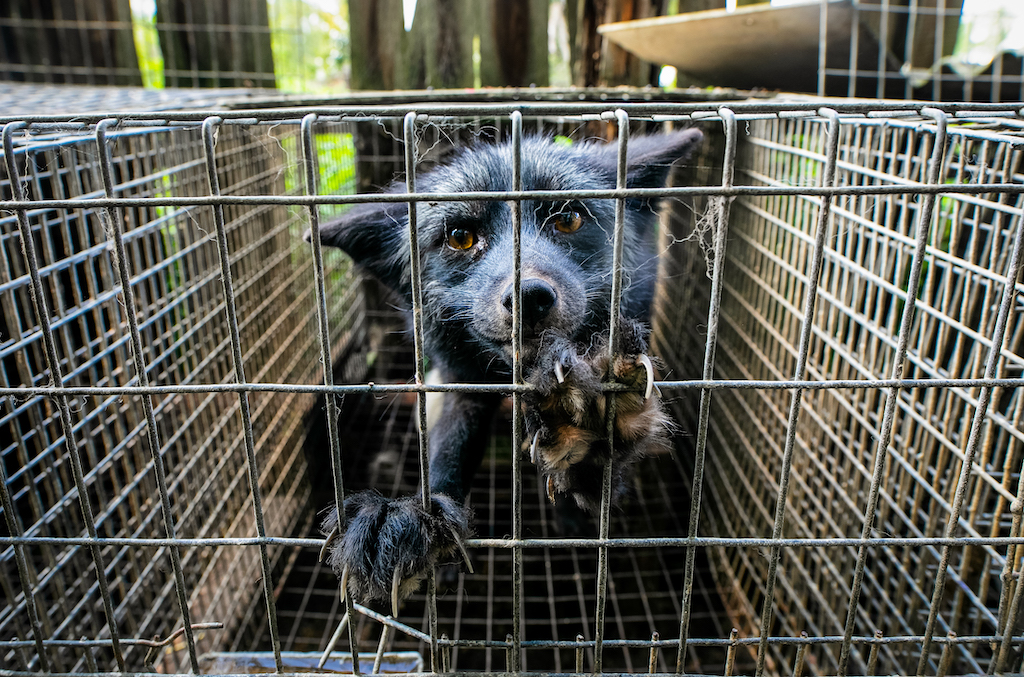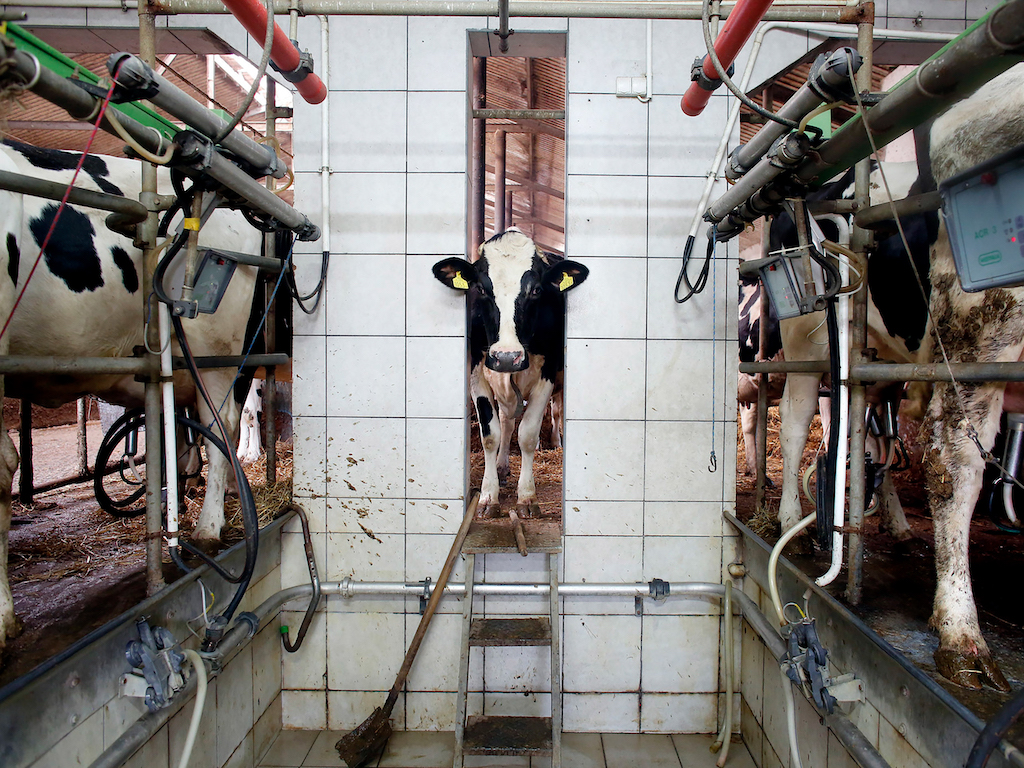4 Mins Read
Warning: The images and content in this article may be disturbing to some readers.
A newly published photobook documenting humanity’s cruel relationship with animals has been described by award-winning actor and activist Joaquin Phoenix as a representation of some of the “darkest, most unsettling places in the world”. In addition to featuring a forward by Phoenix, Hidden: Animals in the Anthropocene showcases the work of dozens of international photojournalists in a 200-image global project capturing the abuse, cruelty, suffering, and exploitation in the animal industry.
The work of 40 noted photographers, among them award-winning photojournalist and author Jo-Anne McArthur, Adam Oswell, Gav Wheatley, Kuni Takahashi, Lissy Jayne and Tamara Kenneally, has been featured in a new book published by animal welfare nonprofit We Animals Media. Exposing the invisible pain, conflict and cruelty that animals endure before ending up on dinner plates and in the clothes we wear, Hidden offers more than 200 visuals spanning six continents.
Phoenix, who writes the foreword for the 320-page hardcover collectible, has described the images as a “searing reminder of our unpardonable behavior towards animals and will serve as beacons of change for years to come”.
These photos prove there is an emergency confronting animals globally, from industrial farming to climate change, and provide valuable insight into the relevance of animal suffering to human health.
Jo-Anne McArthur

“These photos prove there is an emergency confronting animals globally, from industrial farming to climate change, and provide valuable insight into the relevance of animal suffering to human health,” added McArthur. “There has never been a photographic project that reaches this deeply and broadly to show the status of animals in our modern world.”
Photojournalists who contributed to the book captured their images that have long been hidden from public view by working undercover to document abuse, and in some cases, breaking laws that had prevented these atrocities from being exposed.
“The animals we breed, sell and kill for our dinner plate, that we break and maim for sport and tradition, share many of the same emotions that we do: feelings of sadness and joy, pain and fear, love and grief,” said co-editor Keith Wilson, who is also a journalist and founder of Photographers Against Wildlife Crime. Alongside the renowned list of co-creators and photographers, Wilson was also joined by designer David Griffin, who previously worked on National Geographic and Smithsonian Enterprises projects, to bring the new book to life.

The animals we breed, sell and kill for our dinner plate, that we break and maim for sport and tradition, share many of the same emotions that we do: feelings of sadness and joy, pain and fear, love and grief.
Keith Wilson,
Hidden has been released amidst the ongoing coronavirus pandemic, which is only the latest in a slew of zoonotic diseases to emerge after swine flu, MERS, SARS and Ebola, in what scientists and experts have reiterated is yet another stark signal of the need for humanity to change the way we currently live, consume and interact with animals and the natural world.
Read: Preventing another pandemic – the link between coronavirus and livestock farming
To date, more than 75% of new or emerging infectious diseases have spread from animals to humans, and Hidden brings additional perspectives of the environmental and ethical crimes within the global animal trade, from industrial farming and fishing, to slaughter and other human-caused catastrophes such as wildfires and deforestation exacerbated by our ongoing exploitation.

The Joker lead actor is also amplifying awareness of the issue in an upcoming film alongside his co-producer Hollywood actress Rooney Mara, due to be released sometime in 2021. Called the End of Medicine, the new film will address the between animal agriculture and zoonotic diseases in a series of interviews and testimonies from renowned scientists around the world.
Both actors are well known for their activism in promoting veganism and plant-based diets as the ethical and environmentally-friendly choice. Earlier this year, Phoenix was widely praised for using his platform in his winning Oscars speech to spotlight a number of global inequalities, from human injustices to animal welfare and climate inaction.
All images courtesy of We Animals Media, lead image photographed by Andrew Skowron in a Polish dairy farm.




